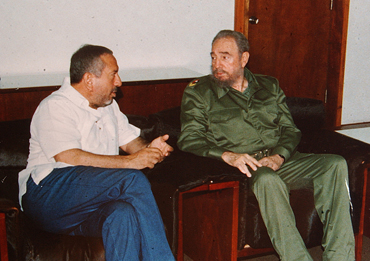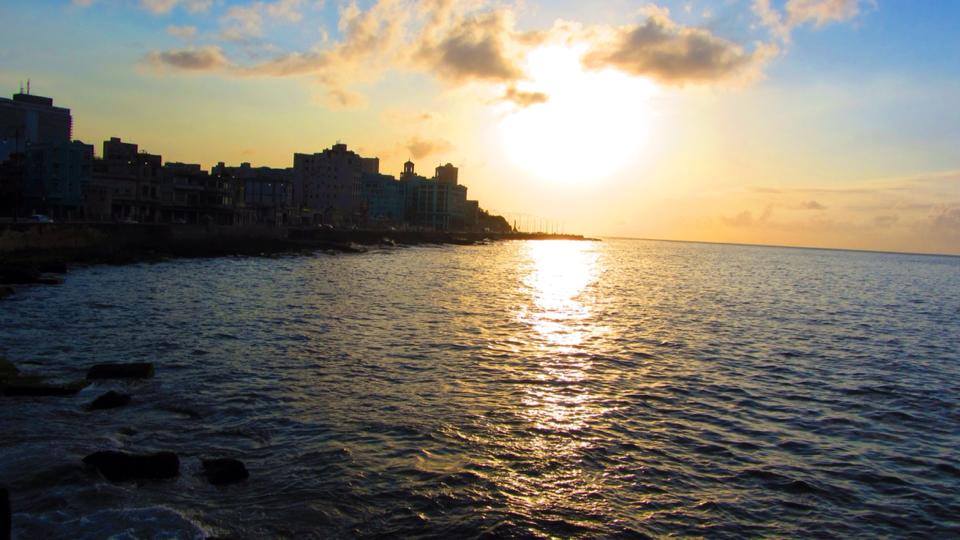CUBA: INVERSIÓN EXTRANJERA; EL CASO MARAMBIO Y LA SOLUCIÓN DE CONFLICTOS.
Desde hoy está en vigor en Cuba la nueva Ley de Inversión Extranjera [No. 118/2014], que contempla, entre sus elementos fundamentales, el régimen de solución de conflictos (Capítulo XVII) sobre la base de “lo acordado en los documentos constitutivos” de la modalidad correspondiente de asociación económica internacional.
Así constaba desde la vieja ley [No. 77/1995] y, al amparo de esta opción contractual, los inversores extranjeros suelen dirimir sus conflictos en las cortes de arbitraje de comercio internacional antes que someterlos a los tribunales cubanos.
La nueva ley agrega que si los conflictos traen su causa de la inactividad de los órganos de gobierno, así como de la disolución o terminación y liquidación de la asociación económica internacional, serán resueltos “en todos los casos por la Sala de lo Económico del Tribunal Provincial Popular que corresponda” (Artículo 60.3).
Aquí el Estado cubano no da margen de libertad contractual y la norma en acción se deriva de las malas experiencias.
QUIEN ES MAX MARAMBIO?.
Joel Max Marambio Rodríguez (n. Santa Cruz, Chile. 1947), empresario y político chileno de izquierda.1 Sus estudios secundarios los realizó en el Internado Nacional Barros Arana. En 1966 se traslada a la Universidad de La Habana, en Cuba, donde obtiene el título de cientista político. En 1973 vuelve a la isla, esta vez en calidad de exiliado, por la dictadura de Augusto Pinochet Ugarte que se inicia ese año en Chile. En Cuba desarrolló una exitosa carrera empresarial, y logra establecer importantes lazos de confianza con la cúpula política del país, llegando a ser parte del círculo cercano de Fidel Castro.
A inicios del 2010, explota un caso de corrupción en Cuba en el que Marambio estaría involucrado a través de su empresa Alimentos Río Zaza. 10 Marambio demandó a Cuba ante la International Chamber of Commerce de París y ganó su demanda con un fallo inapelable. (AV).
EL CASO MARAMBIO.
Café Fuerte tuvo acceso al laudo final con que una corte de arbitraje de la Cámara de Comercio Internacional (CCI) resolvió en París, el 17 de julio de 2013 y por votación dividida de 2 contra 1, el conflicto entre la firma panameña INGELCO, del grupo empresarial liderado por el chileno Max Marambio, y la sociedad anónima Corporación Alimentaria (CORALSA), controlada por el Estado cubano. El documento no ha sido divulgado hasta ahora.
Este laudo dispuso “condenar a CORALSA a pagar a INGELCO” $17,523,095 por daños ocasionados al actuar de mala fe en el proceso de liquidación de la empresa conjunta Alimentos Río Zaza S.A. (ARZ), más $500,000 por costos de arbitraje.
La clave del fallo arbitral radica en que el convenio de asociación entre las partes exigía cumplirlo “de buena fe” (Cláusula 28) y esta no podía frustrarse “por la decisión del Estado cubano, el cual es dueño de CORALSA, de iniciar un procedimiento penal cuyo objetivo parece ser impedir que se realice dicha liquidación y confiscar el patrimonio de la empresa mixta.”
La mala fe de CORALSA estribó en dar excusas y más excusas -desde que ARZ había sido intervenida judicialmente hasta que la Fiscalía había solicitado confiscar el patrimonio de ARZ- para colocar a INGELCO “en una situación de bloqueo” e impedir la liquidación del negocio conjunto, que la propia corte de arbitraje había dispuesto en laudo parcial de 19 de julio del 2012.
De haber actuado CORALSA de buena fe, la liquidación de la empresa mixta ARZ podría haberse consumado antes de que todo su patrimonio se confiscara por la sentencia 229, de 2 de mayo de 2013, que dictó la Sala Primera de lo Penal del Tribunal Provincial Popular de La Habana.
INGELCO había reclamado $153 millones, entre ellos $10 millones por “daño moral,” a pesar de que por esta causa, lo único que se prescribe en Cuba, conforme al Código Civil (1987), es “la retractación del ofensor” (Artículo 89).
EL SALDO OBLIGADO.
La corte de arbitraje rechazó también las sumas que INGELCO reclamó porque CORALSA habría incurrido tanto en abuso de derecho -al violar otra vez el convenio de asociando presentando la liquidación ante los tribunales cubanos- como en enriquecimiento ilícito, al apropiarse de facto de ARZ y quedarse así con la parte del patrimonio (50%) correspondiente a INGELCO.
Los árbitros razonaron que las acciones del Estado cubano contra ARZ “no pueden serle directamente reprochadas a CORALSA,” aunque Yolanda Cáceres, quien ejercía “la doble función de presidente de ARZ y CORALSA,” se hubiera expresado “de manera contundente sobre alegadas infracciones penales.”
Estas últimas pueden inferirse de los descargos de Marambio que constan en sus respuestas a las autoridades cubanas, en un documento publicado por CaféFuerte.
Marambio ganó su caso en arbitraje, pero es difícil que pueda ejecutar el laudo, esto es: cobrarle al Estado cubano los poco más de $18 millones de dólares dispuestos por el fallo de la corte arbitral.
La nueva ley simplifica la solución del conflicto clave que tendrían los inversores extranjeros en Cuba: cómo disolver o liquidar el negocio conjunto. Todos tendrán que entrar por el carril previsto en el Tribunal Provincial correspondiente. Igual sucede con aquellos inversores autorizados para llevar a cabo “actividades vinculadas a los recursos naturales, servicios públicos y ejecución de obras públicas” (Artículo 60.4).
Para los nuevos inversionistas que se asienten en la isla deberían servir de algo estos recordatorios de la historia cubana reciente. Y el fallo de la corte de arbitraje de la Cámara de Comercio Internacional, emitido hace un año en París, sin que el gobierno que ahora impulsa la Ley de Inversión Extranjera se haya dignado en cumplir.
CafeFuerte/Miguel Fernandez Diaz/AV/WIki/InternetPhotos/TheCubanHistory.com
EL CASO “MARAMBIO”; INVERSION EXTRANJERA Y SOLUCION DE CONFLICTOS CON CUBA.
The Cuban History, Hollywood.
Arnoldo Varona, Editor
CUBA: FOREIGN INVESTMENT; the ‘Marambio Case’ and Resolution of Conflicts.
Since today is in force in Cuba’s new Foreign Investment Law [No. 118/2014], which includes among its key elements, the system of conflict resolution (Chapter XVII) on the basis of “agreed on the incorporation” of the corresponding form of international economic partnership.
This consisted from the old law [No. 77/1995], and under this contractual option, foreign investors tend to settle their disputes in arbitration courts of international trade before submission to the Cuban courts.
The new law adds that if they bring their conflicts because of the inactivity of the governing bodies and the dissolution or termination and settlement of international economic partnership will be resolved “in all cases by the Economic Chamber of the Court provincial People’s appropriate “(Article 60.3).
Here the Cuban government does not give room for contractual freedom and the rule action stems from bad experiences.
WHO IS MAX MARAMBIO.?
Joel Max Marambio Rodríguez (b. Santa Cruz, Chile. 1947), Chilean businessman and politician izquierda.1 Their secondary studies were conducted at the National Internship Barros Arana. In 1966 he moved to the University of Havana in Cuba, where he qualified as a political scientist. In 1973 the island again, this time as an exile, by the dictatorship of Augusto Pinochet Ugarte which begins this year in Chile. In Cuba developed a successful business career, and it can establish important bonds of trust with the political leadership of the country, becoming part of the inner circle of Fidel Castro.
In early 2010, it explodes in a corruption case in which Cuba Marambio be involved through its Alimentos Río Zaza. 10 Marambio sued Cuba before the International Chamber of Commerce in Paris and won his lawsuit with final judgment. (AV).
THE MARAMBIO’ CASE.
Café Fuerte had access to the final award to a court of arbitration of the International Chamber of Commerce (ICC) met in Paris on 17 July 2013 and divided vote 2 to 1, the conflict between Panamanian firm INGELCO of business group led by Chilean Max Marambio, corporation and Food Corporation (CORALSA), controlled by the Cuban state. The document has not been publicized so far.
This award ordered “to condemn CORALSA INGELCO pay” $ 17,523,095 for damage to acting in bad faith in the settlement process of the Food joint venture Rio Zaza SA (ARZ), plus $ 500,000 for arbitration costs.
The key to the arbitration award is that the partnership agreement between the parties fulfill required “good faith” (Clause 28) and this could not be disappointed “by the decision of the Cuban state, which owns CORALSA, to initiate proceedings criminal whose goal seems to be to prevent the liquidation is carried out and seize the assets of the joint venture. ”
The bad faith of CORALSA buttressed in making excuses and more excuses since ARZ had been operated legally until the prosecution had sought to confiscate the assets of ARZ INGELCO-to place “in a deadlock” and prevent the liquidation of the joint venture that the very court of arbitration provisions had partial award of 19 July 2012.
CORALSA have acted in good faith, the liquidation of the joint venture ARZ could have accomplished before all his assets confiscated by the judgment 229 of May 2, 2013, which issued the First Criminal Division of the Provincial Court Havana.
INGELCO had claimed $ 153 million, including $ 10 million for “moral damages,” although this cause, all that is prescribed in Cuba, according to the Civil Code (1987), is “the withdrawal of the offender” (Article 89 ).
THE FINAL RESOLUTION.
The arbitration court also rejected the sums INGELCO claimed that CORALSA have incurred both abuse of rights-violating again the agreement associating presenting the settlement to court Cubans and illicit enrichment, appropriate facto ARZ and stay well with the portion of equity (50%) for INGELCO.
The arbitrators reasoned that the actions of the Cuban government against ARZ “may not be interested directly accused with CORALSA,” although Yolanda Caceres, who exercised “the dual role of president ARZ and CORALSA,” had expressed “overwhelmingly on alleged criminal offenses . ”
The latter can be inferred from the Marambio disclaimers contained in their responses to the Cuban authorities, in a document published by CaféFuerte.
Marambio won his arbitration case, but it is difficult to enforce the award, ie charge the Cuban government just over $ 18 million arranged by the decision of the arbitration court.
The new law simplifies the solution of the conflict that would key foreign investors in Cuba: how to dissolve or liquidate the joint venture. Everyone will have to go for rail provided in the relevant Provincial Court. The same applies to those investors authorized to perform “activities related to natural resources, public services and public works” (Article 60.4).
For new investors to settle in the island should count for something these reminders of recent Cuban history. And the judgment of the court of arbitration of the International Chamber of Commerce issued a year ago in Paris, without the government now promotes the Foreign Investment Law has deigned to meet.
CaféFuerte / Miguel Fernandez Diaz /AV/ InternetPhotos / TheCubanHistory.com
IF “MARAMBIO”; FOREIGN INVESTMENT AND CONFLICT RESOLUTION TO CUBA.
The Cuban History, Hollywood.
Arnoldo Varona, Editor






